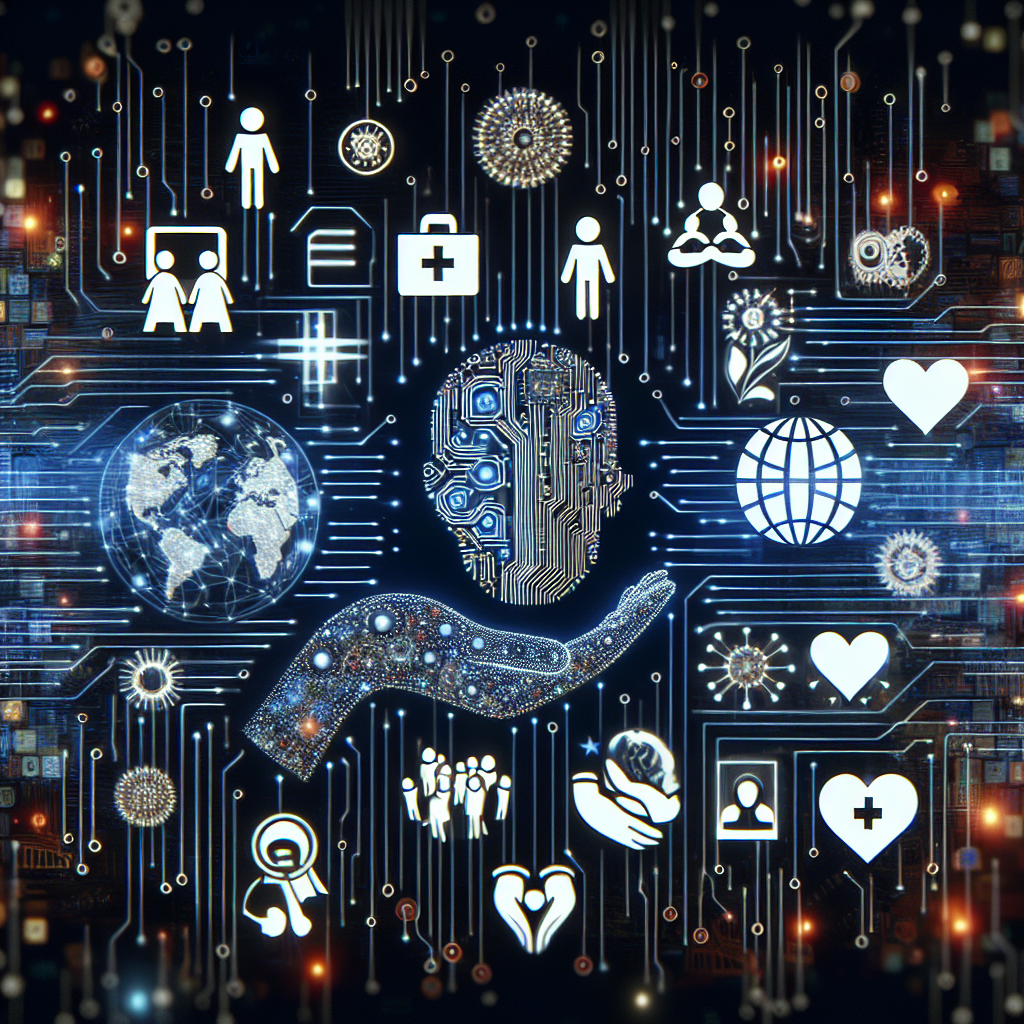Introduction
Artificial Intelligence (AI) is revolutionizing industries across the board, and the nonprofit sector is no exception. Nonprofit organizations are beginning to harness the power of AI to improve efficiency, increase impact, and better serve their communities. From fundraising to program delivery, AI is reshaping the way nonprofits operate. In this article, we will explore how AI is transforming the nonprofit sector and the potential benefits and challenges it presents.
How AI is Reshaping the Nonprofit Sector
1. Fundraising
One of the most significant ways AI is reshaping the nonprofit sector is in fundraising. AI-powered tools can analyze vast amounts of data to identify potential donors, personalize fundraising campaigns, and predict donor behavior. This allows nonprofits to target their fundraising efforts more effectively and maximize their fundraising potential.
For example, AI can help nonprofits identify individuals who are most likely to donate based on their browsing history, social media activity, and other online behaviors. This targeted approach can significantly increase donation rates and help nonprofits reach their fundraising goals more efficiently.
2. Program Delivery
AI is also transforming how nonprofits deliver programs and services to their communities. AI-powered tools can analyze data to identify trends, predict outcomes, and optimize program delivery. This allows nonprofits to tailor their programs to better meet the needs of their communities and improve overall impact.
For example, AI can analyze data on program participants to identify patterns and trends that can help nonprofits improve program design and delivery. AI can also help nonprofits track program outcomes in real-time, allowing them to make adjustments on the fly and ensure programs are meeting their intended goals.
3. Volunteer Management
AI is also being used to streamline volunteer management for nonprofits. AI-powered tools can match volunteers with opportunities based on their skills, availability, and interests. This can help nonprofits recruit and retain volunteers more effectively and ensure they are making the most of their volunteer resources.
For example, AI can analyze volunteer data to identify trends and preferences that can help nonprofits tailor volunteer opportunities to better meet the needs and interests of their volunteers. This can help nonprofits attract a diverse range of volunteers and ensure they are making a significant impact in their communities.
4. Impact Measurement
One of the most significant challenges nonprofits face is measuring their impact and demonstrating their effectiveness to donors and stakeholders. AI is helping nonprofits overcome this challenge by providing tools to collect, analyze, and report on data related to their impact.
For example, AI can analyze data on program outcomes, participant demographics, and other key metrics to provide insights into the effectiveness of nonprofit programs. This data can help nonprofits make data-driven decisions, improve program design, and demonstrate their impact to donors and stakeholders.
Benefits of AI in the Nonprofit Sector
There are several benefits of AI in the nonprofit sector, including:
1. Increased efficiency: AI-powered tools can automate repetitive tasks, streamline processes, and free up staff time to focus on more strategic activities.
2. Improved impact: AI can help nonprofits better target their efforts, measure their impact, and optimize program delivery to maximize their impact on their communities.
3. Enhanced fundraising: AI-powered tools can help nonprofits identify potential donors, personalize fundraising campaigns, and predict donor behavior to increase fundraising effectiveness.
4. Better volunteer management: AI can help nonprofits match volunteers with opportunities, track volunteer impact, and ensure they are making the most of their volunteer resources.
Challenges of AI in the Nonprofit Sector
While AI offers many benefits to the nonprofit sector, there are also challenges to consider, including:
1. Data privacy: AI relies on vast amounts of data to function effectively, raising concerns about data privacy and security for nonprofits and their donors.
2. Cost: Implementing AI-powered tools can be costly, and many nonprofits may not have the resources to invest in AI technology.
3. Skills gap: AI requires specialized skills and expertise to implement and use effectively, which may be a barrier for some nonprofits.
4. Ethical concerns: AI raises ethical concerns around bias, transparency, and accountability that nonprofits must navigate when using AI-powered tools.
FAQs
1. What is artificial intelligence (AI)?
Artificial intelligence (AI) refers to the simulation of human intelligence processes by machines, particularly computer systems. AI can perform tasks that typically require human intelligence, such as visual perception, speech recognition, decision-making, and language translation.
2. How is AI being used in the nonprofit sector?
AI is being used in the nonprofit sector to improve efficiency, increase impact, and better serve communities. Nonprofits are using AI-powered tools for fundraising, program delivery, volunteer management, impact measurement, and more.
3. What are the benefits of AI in the nonprofit sector?
The benefits of AI in the nonprofit sector include increased efficiency, improved impact, enhanced fundraising, and better volunteer management. AI can help nonprofits automate tasks, target their efforts, measure impact, and optimize program delivery to maximize their impact on their communities.
4. What are the challenges of AI in the nonprofit sector?
Challenges of AI in the nonprofit sector include data privacy concerns, cost barriers, skills gap, and ethical considerations. Nonprofits must navigate these challenges to effectively implement and use AI-powered tools.
Conclusion
AI is reshaping the nonprofit sector by improving efficiency, increasing impact, and better serving communities. From fundraising to program delivery, AI-powered tools are transforming how nonprofits operate and making it easier for them to achieve their mission. While there are challenges to consider, the benefits of AI in the nonprofit sector are clear, and nonprofits that embrace AI are likely to see significant improvements in their operations and impact.

